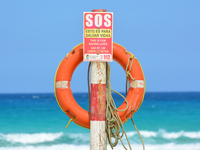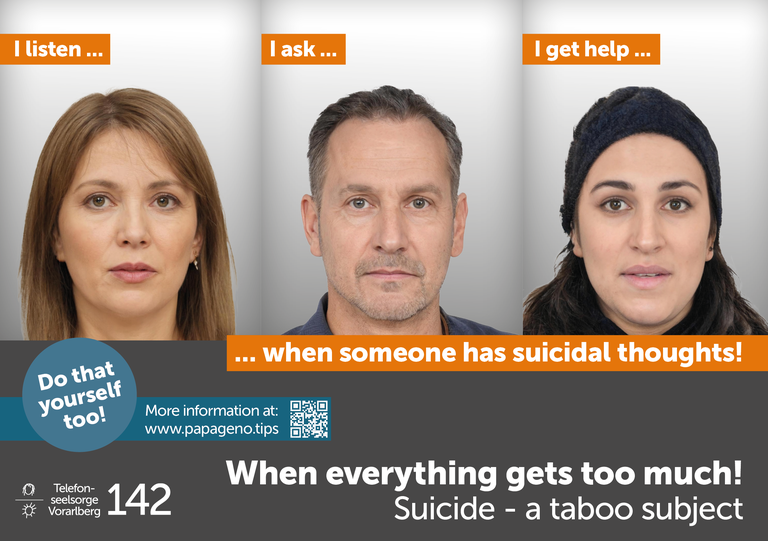Uncomfortable, unhappy, helpless?
Talk about it and seek help in good time.
Psychological stress is part of our lives. Our world of work is also inconceivable without stresses and strains such as time pressure, workload, monotony or permanent change.
The most important thing is to do something when you notice that someone is out of sorts. Say straight out that you feel they aren't OK. And listen to them! Get help if the situation worsens and you don’t know what else to do.
Many people are afraid that they could be doing something wrong. But the only wrong thing would be to do nothing! Listen to your gut! Keeping an open heart and open ears are better than giving advice!
And if you yourself are affected by psychological stress, addictive behaviour or suicidal thoughts then it's important to talk about it with somebody close to you who you can confide in or with a specialist. You might also find it easier to speak anonymously to a counsellor on the phone first. The telephone counselling staff (Tel. 142) are prepared to handle just such conversations.
To download click here:
How do I recognize psychological stress?
Daniela Frei-Le Gall, MA
Information in: Serbo-Croatian - Turkish - Arabic - Deutsch
Basically, we are equipped by nature in such a way that we can usually handle it well. But sometimes it gets too much for us and we realize that our health and performance suffer. If we do not succeed in reducing the perceived load, then the advice of a neutral or professionally competent person can be useful.
Addiction can also arise in response to stress, worries, and fears.
Often, especially at the beginning, you have the feeling that you get to grips with your problems and negative feelings with substances supposedly easily. In reality, however, you only stun yourself for a moment and the problems are the same or even bigger afterwards.
But also behaviors (for example computer games, shopping or gambling) can eventually lead to a behavioral addiction through mechanisms such as distraction.
What is the effect of addiction?
Most addictions have a nice feeling at the beginning and the addiction begins creepingly and does not immediately show the bad consequences, so that sufferers notice this late - sometimes too late.
In the end, however, addiction occupies an even larger place in life and it is all about addiction, whereby one usually then consumes not because of the supposed "beautiful", but against withdrawal symptoms.
How do I recognize addiction in my case or others’?
Often others recognize the addiction earlier than yourself or sufferers. However, one often does not dare to address the addiction to others.
Central alerts for addiction are:
- Neglect of interests both privately and professionally
- Loss of control over the beginning, duration and termination of addictive behavior or consumption
- A steady increase in the amount or duration of consumption
Relatives and work colleagues are very important when it comes to recognizing psychological stress and addictive disorder because they usually notice the early signs. This can be the case in the family environment, as well as in the workplace.
It is important to discuss a change in behavior or the use of addictive substances early and clearly with those affected, to show interest and, for example, not to talk down the onset of addictive behavior.
If you feel that someone needs professional support, please contact the aid organization and counselling service listed on this website or contact them yourself for advice.

Hinschauen und Handeln
Wie kann ich als Arbeitgeber:in/Vorgesetzte:r oder Arbeitskolleg:in einen Mitarbeiter:in unterstützen und helfen?

Weiterführende Angebote für Betriebe
Am Arbeitsplatz können viele Komponenten aufeinandertreffen. Deshalb sollte hier besonderes Augenmerk auf Mitarbeiter:innen gelegt werden.

Du suchst Hilfe?
Für dich selbst, für deine Angehörigen, Kolleg:innen oder Mitarbeiter:innen? Hier findest du die wichtigsten Kontaktadressen.
Supported by:



